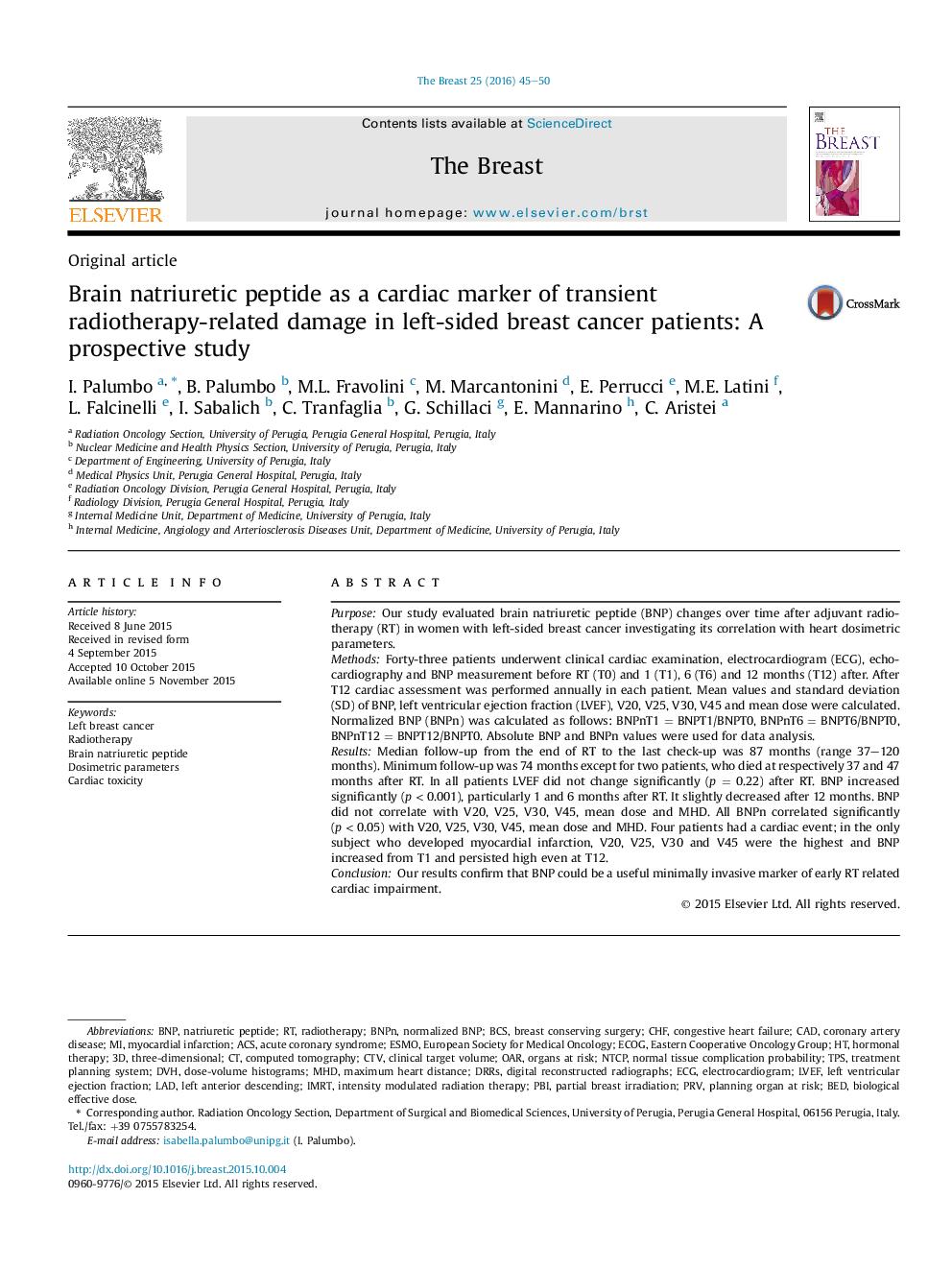| کد مقاله | کد نشریه | سال انتشار | مقاله انگلیسی | نسخه تمام متن |
|---|---|---|---|---|
| 3908446 | 1599355 | 2016 | 6 صفحه PDF | دانلود رایگان |
• Adjuvant radiotherapy (RT) for left breast cancer may induce cardiac damage.
• Rise in Brain Natriuretic Peptide (BNP) can occur after a cardiac impairment.
• In our study BNP increased significantly 1, 6 and 12 months after RT.
• Normalized BNP (BNPn) is the ratio between BNP value at each time and at baseline.
• In our series BNPn correlated significantly with V20, V25, V30, V45, mean dose, MHD.
PurposeOur study evaluated brain natriuretic peptide (BNP) changes over time after adjuvant radiotherapy (RT) in women with left-sided breast cancer investigating its correlation with heart dosimetric parameters.MethodsForty-three patients underwent clinical cardiac examination, electrocardiogram (ECG), echocardiography and BNP measurement before RT (T0) and 1 (T1), 6 (T6) and 12 months (T12) after. After T12 cardiac assessment was performed annually in each patient. Mean values and standard deviation (SD) of BNP, left ventricular ejection fraction (LVEF), V20, V25, V30, V45 and mean dose were calculated. Normalized BNP (BNPn) was calculated as follows: BNPnT1 = BNPT1/BNPT0, BNPnT6 = BNPT6/BNPT0, BNPnT12 = BNPT12/BNPT0. Absolute BNP and BNPn values were used for data analysis.ResultsMedian follow-up from the end of RT to the last check-up was 87 months (range 37–120 months). Minimum follow-up was 74 months except for two patients, who died at respectively 37 and 47 months after RT. In all patients LVEF did not change significantly (p = 0.22) after RT. BNP increased significantly (p < 0.001), particularly 1 and 6 months after RT. It slightly decreased after 12 months. BNP did not correlate with V20, V25, V30, V45, mean dose and MHD. All BNPn correlated significantly (p < 0.05) with V20, V25, V30, V45, mean dose and MHD. Four patients had a cardiac event; in the only subject who developed myocardial infarction, V20, V25, V30 and V45 were the highest and BNP increased from T1 and persisted high even at T12.ConclusionOur results confirm that BNP could be a useful minimally invasive marker of early RT related cardiac impairment.
Journal: The Breast - Volume 25, February 2016, Pages 45–50
